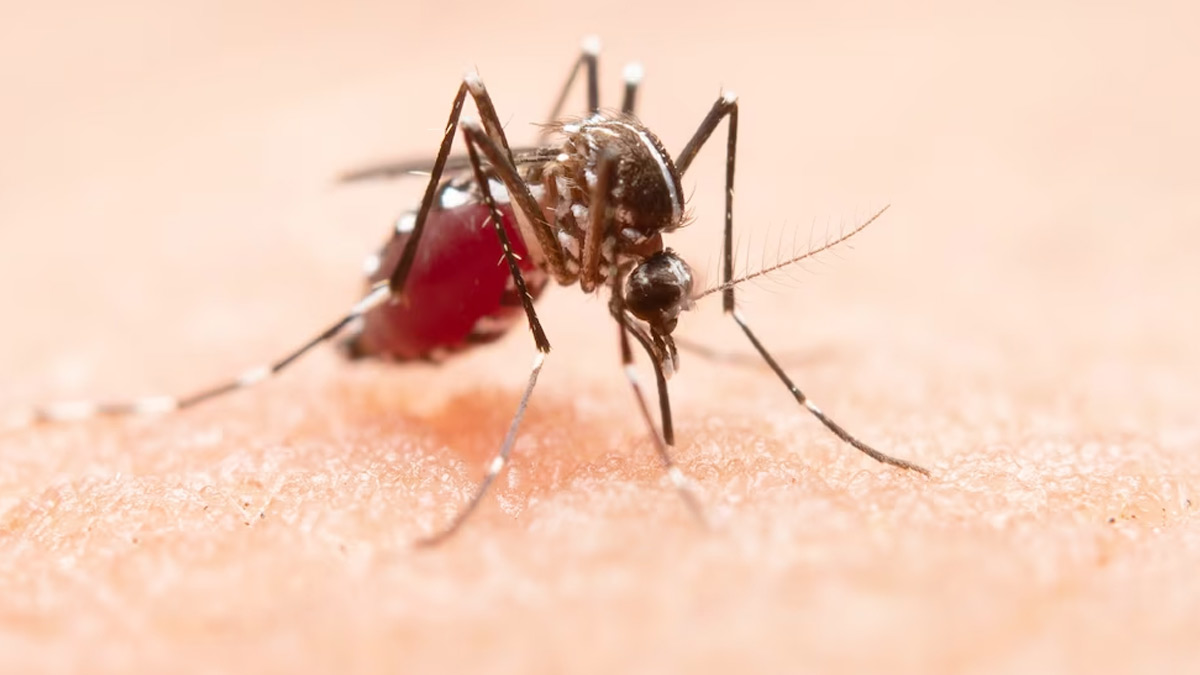
Diabetes is one of the most prevalent diseases around the world. In India alone, an estimated 7.7 crore people, or one in every 11 Indians are diagnosed with diabetes, making it the second most affected country in the world after China. Diabetes can put you at risk of several infections while increasing the chances of severity. With summer here, dengue infection cases are likely to witness a rise. As per the recent data from the European Centre For Disease Prevention and Control (ECDC), 1.1 lakh dengue cases were documented in India between January and October of 2022.
Table of Content:-
While dengue is a treatable illness, it can be life-threatening, especially for diabetics. On this National Dengue Day, we spoke with Dr Altaf Patel, Director-General Medicine, Jaslok Hospital and Research Centre, Mumbai, to understand the extreme dangers of diabetes and dengue combined.
Also Read: How Often Can You Get Dengue? Expert Answers
What Makes Dengue Concerning?

Dr Patel said, “Dengue fever is rarely fatal. It may cause joint problems, fever, and body pain that will last for a long time.” Death from dengue is extremely rare, he added.
But the doctor warned against dengue hemorrhagic fever, which can be lethal. According to the doctor, severe dengue can cause the platelets to go alarmingly low, leading to serious bleeding. He said, “If you have dengue fever, monitor your platelets at home, rest and take necessary vitamins.”
Symptoms Of Severe Dengue Infection
Common symptoms of dengue include:
- High fever (40°C/104°F)
- Severe headache
- Pain behind the eyes
- Muscle and joint pains
- Nausea
- Vomiting
- Swollen glands
- Rash
According to the World Health Organization (WHO), severe dengue symptoms may look different from normal dengue infection. The symptoms include:
- Severe abdominal pain
- Persistent vomiting
- Rapid breathing
- Bleeding gums or nose
- Fatigue and weakness
- Restlessness
- Blood in vomit or stool
- Pale and cold skin
How Dengue Affects Diabetes Patients

According to Dr Patel, diabetics do not fare well when infected with dengue. When they get infections , their sugar requirements increase. As per the US Diabetes Research and Wellness Foundation, infection can cause a stress response in the body by increasing the amount of certain hormones, such as cortisol and adrenaline. These hormones then work against the action of insulin, another hormone that helps the body use sugar for energy. As a result, the body's production of glucose increases, which results in high blood sugar levels.
Dr Patel says, “Diabetics can have incipient kidney disease, which affects the kidneys' ability to perform its functions, and the creatinine or kidney function may be borderline. This can go out of control when the patient has an infection, such as dengue fever, resulting in renal failure or other fatal conditions, said Dr Patel.
According to a study published in the Annals of Medicine and Surgery, diabetes patients are more at risk of haemorrhage. Since they have weak immunity and fragile blood vessels, diabetics may develop severe dengue symptoms. In another study published in the Journal of Microbiology, Immunology and Infection, diabetic patients suffering from dengue are at risk of developing dengue shock syndrome, which is “characterised by severe plasma leakage, severe bleeding, and severe organ involvement manifested as elevated liver enzymes, impaired sensorium, and myocarditis”.
Also Read: Viral Fever, Dengue, COVID, Flu and More, Same Symptoms Making Diagnosis Difficult
Prevention Tips
Not just diabetics, but anyone can get infected with the dengue virus. Here are some preventive steps to take:
- Avoid accumulation of still water in surrounding areas
- Spray Larvicidal insecticides and pesticides in stagnant water
- Use mosquito nets, aerosolised insecticides in rooms while sleeping
- Use insect repellants which can be applied to the skin and clothes
- Use mesh doors and windows wherever practically possible
- Herbal plants which have insect repellant actions may additionally be used
- Burn camphor and dhoop
- Apply ice or aloe vera gel on mosquito bites for symptomatic relief
Bottomline
People with underlying diseases like diabetes need to be more vigilant when it comes to infections. While conditions like diabetes can be managed with effective treatment and lifestyle changes, a brush with an infection like dengue can be lethal, as per the doctor. So, you must take all necessary measures against the dengue virus, which is spread through the bites of the infected Aedes species mosquitoes.
Also watch this video
Read Next
Dry Mouth Can Be A Sign Of Diabetes: Other Symptoms In Your Mouth That Could Indicate The Disease
How we keep this article up to date:
We work with experts and keep a close eye on the latest in health and wellness. Whenever there is a new research or helpful information, we update our articles with accurate and useful advice.
Current Version